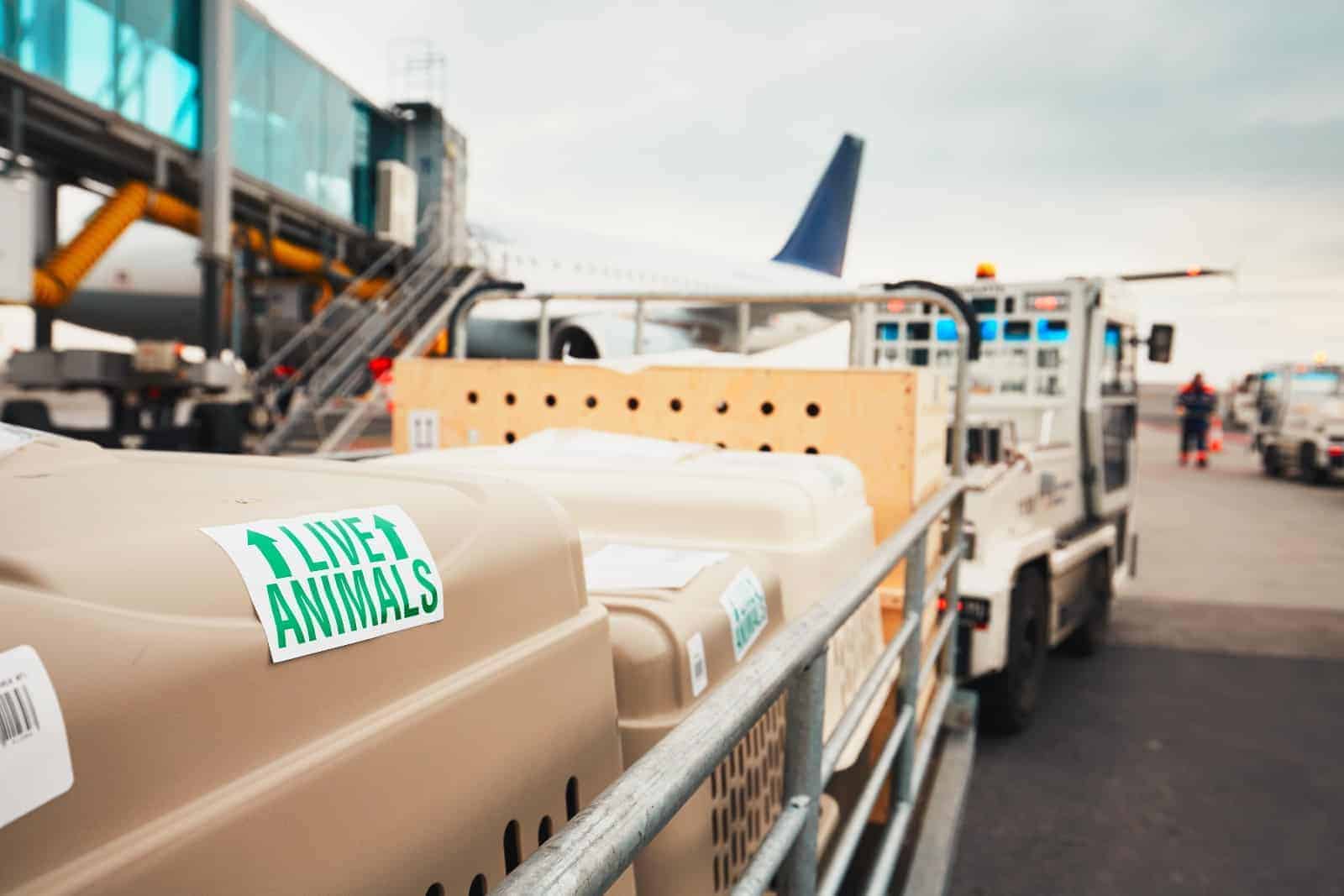International removals can be costly, and a great deal can go wrong if they're not well organised. That’s why planning your removals well beforehand is essential to making your move abroad as smooth and stress-free as possible.
In this guide, we will look at all of the international removals options available when you move abroad, and how you can keep your costs down while getting a quality service.
Secure Peace of Mind with Best-Value International Health Coverage
International Citizens Insurance provide free, no-obligation quotes from the leading international health insurance providers with plans tailored to meet your needs. Trusted by thousands of expats worldwide.
Choosing an international removals company
International moving companies usually provide a full package of services, from packing to dismantling or assembling furniture to storage, insurance and dealing with customs. Many offer pet transport as an additional service.
When choosing a removals company, check that they have at least one of the following accreditations:
- members of FIDI Global alliance accredited by the FIDI Accredited International Mover standard (FAIM)
- members of the British Association of Removers Overseas Group (BAR OVERSEAS), which is covered by the IMMI (International Movers Mutual Insurance) Advance payment guarantee scheme for your financial protection.
Most international removals companies offer online quote calculators to give approximate quotes. The final quote will arrive after a company representative speaks to you and visually inspects the items you want to move.
Online estimates do not usually include extra costs such as insurance, handling fees or minimum shipment charges, either.
Companies will usually offer you packing services, or you can choose to pack your goods yourself - but either way, they will provide packing materials.
When a company packs for you, they are responsible for the inventory. Most will use special electronic and photographic inventories - much easier than if you have to do it yourself with a pen and paper.
Professional removers will also ensure that your inventory is translated into your destination language for customs.
International removals companies are generally experienced in filling out all the necessary paperwork and calculating duty on your behalf, which can be very useful as different duties systems can be quite complicated.
It's a good idea to find out beforehand whether you have to pay import duties on anything you bring into your new country.
You might, for example, end up paying 70 percent import tax on the list price of the car in the country you are moving to - which would wipe out any savings you make by shipping your current car, rather than selling up and buying when you arrive.
Container shipping from the UK
International container shipping rates range from £1,250 up to a massive £15,000, depending on the volume of your goods and the distance you need them moved.
Sea freight containers are generally available in two sizes - 20 feet or 40 feet. A 20-foot container will hold the contents of an average three-bedroom family home. If you’re shipping any vehicles along with the contents of your house, you will almost certainly need a 40-foot container.
As an example, a 20-foot container to Cyprus will cost you a minimum of £3,300. Depending on the size of the load, shipping a container to Spain could cost £3,000 - £7,000.
Container shipping is a slow process, depending on the route it takes at least a few weeks. If you opt for a shared container, it might take up to 50% longer.
Road freight from the UK
If you’re moving to Spain, France, Germany or Portugal, you could opt for road freight to move your belongings. It’s a very popular option as it’s quick and cheap, and there are plenty of removal companies operating between the UK and nearby countries.
The more specific you are, the closer your initial estimate will be to the final quote. You can even upload photos of the items you want to take with you, to help removers give you a more precise estimate.
When negotiating removals, be sure to deal with all possible issues upfront. Questions to ask include:
- Does the quote cover fuel, road tolls, goods in transit insurance and packing materials?
- Do they offer packing services?
- How many porters can they provide for the quoted price? (If it’s only one, you’re probably going to have to help!)
- If your property has tricky access or restricted parking, is your remover equipped to deal with it?
- Do they do the paperwork for the customs?
- Do they dismantle and assemble furniture?
- In an emergency, can they arrange for temporary storage at your destination?
Our research shows that if you are moving to Spain, for an average three-bedroom house, the initial online estimates for road freight range from £1,900 to just over £4,000.
A light-weight way to ship your essentials abroad
If you are determined not to take bulky items abroad, door-to-door shipping services such as My Baggage can be a great alternative. They offer fast, convenient, reliable, and low-cost door-to-door shipping of suitcases, boxes, bags, etc., to your new home abroad.
For many people, it could be a much more cost-effective option to sell any large, bulky items and ship their most treasured belongings with My Baggage. They will arrange a collection of your luggage, boxes, and sports equipment and deliver them anywhere in the world with full online tracking
DIY international removals
If you are moving to France, Spain, or other countries not far away from the UK, you can hire or buy a van, fill it with what you need to take over and drive it yourself.
It’s not necessarily the cheapest option. You need to count in fuel, tolls, overnight stays, ferry charges, etc. It’s also tiring.
However, if you feel up to it, this is what you need to take into consideration:
How much can your van legally transport?
Most vans popular with DIY removers weigh around 2300 to 2400 kg without any load. You need to add to this a tank of fuel at 90 kg, a spare wheel, a couple of passengers, personal luggage, and your available payload will be around 1000kg.
It’s all about weight, not physical space. Even if your van is just ¾ loaded, but the weight exceeds the legal limit, you risk being stopped and fined. The UK traffic police have intensified van checks recently. If caught, you will have to offload excess load and hire somebody to come and pick it up. You’ll also be fined.

Many ports in Spain and France are installing weighbridges, so it’s quite probable your van will be weighed before you board the ferry or train. They fine quite heavily for overloading.
So, don’t chance it, check and make sure you’re within legal limits.
Check the driving rules and regulations
Make sure you know all the legal requirements in the countries you are going to drive through.
- Check that you are properly insured and have a breakdown cover for all your transit countries;
- If you are driving through France, make sure you have as many different credit cards as possible as not all the tolls in France accept visa.
- All drivers on French roads are obliged to carry a yellow fluorescent jacket in case they need to get out in an emergency. In Spain, it's one per passenger. The jacket must be stored in the car. Keep a spare bulb kit, 2 warning triangles in the boot and a spare wheel and the tools required to change it;
- Headlamp beam converters must be fitted to your car even if you only drive during the daylight hours;
- Keep all of your paperwork for the car/van with you including the V5, MOT, tax, insurance, and if it's a company car, a letter of authority that states you can drive the car outside the UK.
Check custom regulations for shipping household items
You might have to pay customs duty on some personal belongings or household items you bring into Spain.
When you are shipping household items and other personal possessions into Spain there is a certain amount of paper required. If you deal with an international removals company, they will take care of most of the documents.
If you do it yourself, you might need:
- proof of ID such as a passport,
- a detailed inventory of the items with a value attached, in Spanish, two copies, signed and dated by you, certified by the Spanish consulate in your country of origin.
Shipping pets
Pet transportation needs to be planned well in advance of your move, to allow enough time for formalities.

Talk to your vet first to make sure you have all you need.
It is also a good idea to contact the Pet Travel Scheme helpline (0370 241 1710) prior to making any travel plans, to discuss any recent changes or specific restrictions in the country you are moving to.
Every airline has different policies, but some allow small pets to be carried on board in the cabin in ‘carry-on kennels’, which fit under the seats.
You need to ensure your pet is odourless, so lay off the dog bones before your flight! Your pet should not disturb other passengers and must remain in the kennel throughout the flight.
If you’re travelling with your pet, it can travel as ‘accompanied luggage’ in the cargo hold of the plane with your luggage (preferably without being put through the luggage wrapper first).
If flying with your pet sounds too complicated, remember that many removal companies offer pet transportation services.
You might find useful:
- Living In Europe After Brexit: What You Need To Know – links and resources to constantly updated official pages about Brexit and how it can impact UK expats.
Secure Peace of Mind with Best-Value International Health Coverage
International Citizens Insurance provide free, no-obligation quotes from the leading international health insurance providers with plans tailored to meet your needs. Trusted by thousands of expats worldwide.










